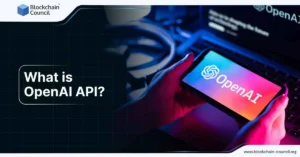OpenAI’s Decision to Pursue Windsurf Over Cursor

Anysphere: A Rising Star in AI Coding Tools
Anysphere, the parent company of Cursor, is experiencing rapid growth in the world of AI coding assistants. Reports indicate that the company is currently uninterested in selling to larger entities like OpenAI, despite its appeal as a target for acquisition.
Cursor’s Remarkable Growth
Cursor is recognized as one of the leading AI-powered coding tools, and its financial performance reflects its popularity. The company’s revenue has been growing at an impressive rate, doubling approximately every two months. Currently, Anysphere’s average annual recurring revenue (ARR) stands at around $300 million, showcasing its strong market position.
Rejection of Acquisition Offers
The quest for acquisition hasn’t been without interest; OpenAI, the creator of ChatGPT, previously approached Cursor for a potential deal. However, Anysphere decided to decline these early discussions and has turned down multiple offers since then. The reasons for this choice stem from a desire to maintain independence, as insiders inform that the startup feels confident about its trajectory and future prospects.
Anysphere is reportedly looking to raise additional capital, seeking a valuation of around $10 billion. This indicates that the company is focused on expanding without being tied down by outside ownership.
OpenAI’s Search for Growth
Despite missing out on acquiring Anysphere, OpenAI remains on the lookout for established AI coding tools. Reports suggest that the organization has engaged with more than 20 other startups in its search. Among these, it has shifted its focus to Windsurf, another rapidly growing tool, and even made a substantial acquisition offer of $3 billion.
Windsurf’s Rapid Ascent
Windsurf is smaller compared to Cursor, but it has been gaining traction among developers. Its ARR hit about $100 million—a significant jump from $40 million earlier this year. This growth indicates Windsurf’s increasing popularity, particularly for its compatibility with legacy enterprise systems, which are essential for many businesses today.
Windsurf did not respond when approached for comments, and OpenAI has similarly declined to provide details regarding its acquisition discussions.
The Competitive Landscape for OpenAI
OpenAI’s interest in acquiring AI coding tools is possibly driven by the need to explore new avenues for growth. The competitive landscape is becoming more challenging, especially with entities like Google’s Gemini and China’s DeepSeek applying downward pressure on pricing for foundational models. Additionally, recent advancements from competitors, such as Anthropic and Google, in coding benchmarks may make them a more attractive choice for developers.
The Benefits of Acquisition for OpenAI
While OpenAI has the capability to develop its own AI coding assistant, acquiring an existing product that has already built a developer following offers a more efficient route to expansion. By leveraging established tools, OpenAI can bypass the lengthy process of developing a competitive product from the ground up.
Observations from Industry Experts
Venture capitalists investing in developer tools are keenly observing the developments in this space. Chris Farmer, a partner and CEO at SignalFire, noted on TechCrunch that OpenAI’s strategy may lean heavily toward acquisitions at the application level, emphasizing the existential nature of maintaining a competitive edge in the market.
This bustling environment showcases the significance of developer tools in the tech landscape and highlights how major players like OpenAI are strategizing to enhance their offerings and stay ahead in the rapidly evolving field of artificial intelligence.






